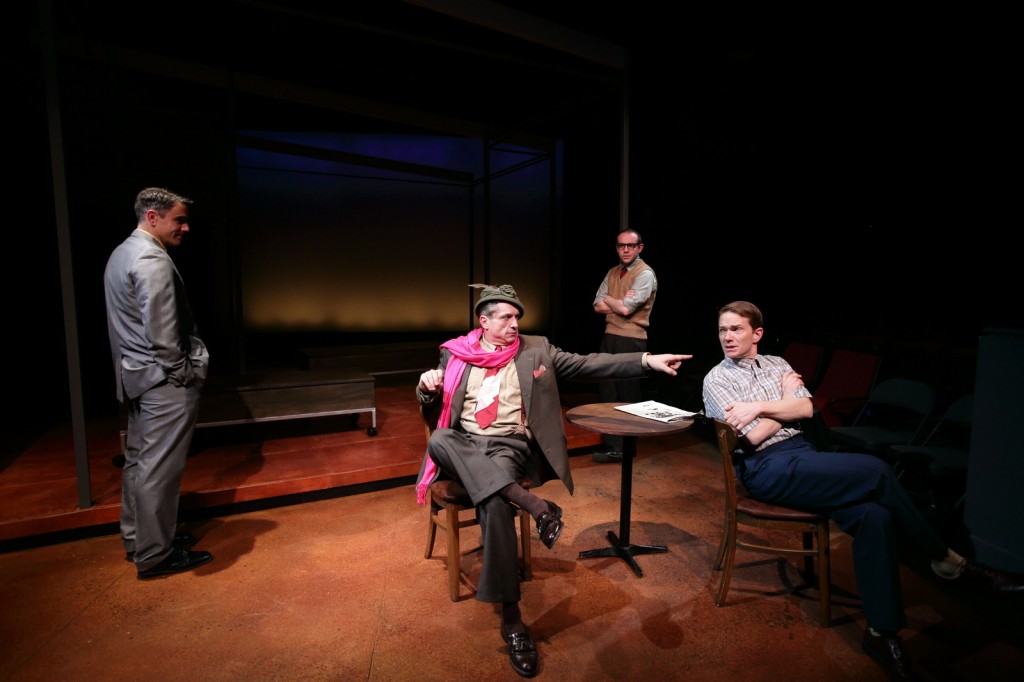
Steve Kidd, Will McGarrahan, Victor L. Shopov, & Shelley Bolman in The Temperamentals. Photo by Mark S. Howard
The Tempermentals by Jon Marans, Lyric Stage Company, 3/30/12-4/28/12, https://lyricstage.com/
main_stage/the_temperamentals/.
Reviewed by Craig Idlebrook
The oppressed can’t name their condition without fear of reprisal. They can’t gather together. They can’t escape their condition in the traditional refuges of family, community, friendship and sex. Imagine trying to create change swimming against such a tide.
The Lyric Stage Production of the Tempermentals examines how the personal and political blur for homosexual men in the nascent pre-Stonewall gay rights movement. For these men, every touch or smile must always be viewed either as an act of rebellion or a risk work taking. The play follows the true story of a small group of gay men who forge community and reclaim their humanity amidst an atmosphere of institutionalized homophobia in post-WWII Los Angeles. But rather than being a static recitation of historic heroism, the Tempermentals teams with life as it catches the pulse of the love that binds this small group of outcasts.
Harry Hay (Will McGarrahan) is a radical who is spinning his wheels. A firebrand (if closeted) homosexual and a communist teacher, he scares even the most radical as he tries to gather signatures for a homosexual declaration of human rights. Then he falls for Rudi Gernreich (Nael Nacer), a fashion designer and a Holocaust survivor who smoothes Harry’s rough edges and opens his shell. The two attract a small group of politically-minded gay men to agitate for civil rights in a time when homosexuality itself is criminalized. Rejected by even the communist party, they must create their own community by stripping away their shame.
Director Jeremy Johnson does a fine job helping his actors infuse their characters with nuance and feeling. McGarrahan and Nacer are especially brilliant together as they fall in love and grow exasperated with each other from moment to moment, but every actor in this cast is strong, even when playing many parts. They are especially apt portraying the shifting tensions and alliances in each scene, as being part of a movement doesn’t mean the group always moves in concert.
Sara Brown’s stark set, a skeleton of a room with sparse furniture, helps underline the theme that there is no separation for this group between the personal and the political. In contrast, the mood music between scenes sometimes punctuates the dramatic points of the play too much, at times bordering on Law and Order heavy. Also, the blocking sometimes provides only wonderful views of an actor’s backs during crucial dialogue, but this almost works to reinforce how conversation between closeted friends never reveals all.
Perhaps most impressively, this play succeeds where other productions fear to tread. It’s technically difficult to multi-cast actors, communicate historical events in a lively and grounded way and keep serious material from slipping into melodrama. But this production is so well-done that it even pulls off the “rest of the story” flash-forward at the end of the play with the same flare and heart as is infused in every single line of dialogue. Perhaps it’s because the characters, in the end, decide they have nothing to hide, and this thought sets them free enough to talk about everything with heart.
